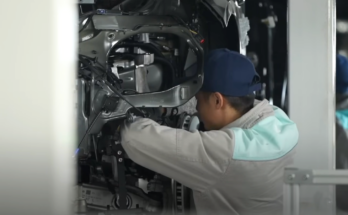Divorce is rarely anything other than a painful, protracted and costly process for at least one side. So here we are, weeks from starting divorce proceedings with the EU and already looks like we will not escape getting hurt. However, having a sense of a future post-divorce can help hugely in getting us through the difficult days and weeks ahead. Or months. Years… possibly.
Of course we probably want to resist jumping immediately into bed with someone else. That too can have its risks and discomforts. It is probably best to first take stock of who we are and what we want. Maybe with the help of some counselling. Then we can start to imagine a better world…
We may be starting that stock taking process with the government’s Industrial Strategy Green paper released in January. It’s is not pretty reading.
It is in fact a warts-and-all portrait of an economy which, outside the South East, is hardly working for anyone with stagnant, low wages. But the government, with the Prime minister taking direct leadership, has set out a brave plan to “rebalance the economy across sectors and areas in order to spread wealth and prosperity around the country”. Apart from the significant omission of any considerations of sustainability, this is a good vision that seems to recognise that distribution of wealth is at least as important as the actual amount.
May’s strategy presents an opportunity for the government to demonstrate leadership and give hope amid the turmoil of the divorce proceedings. And there is little doubt that the divorce will be of the messy variety. Messy and undignified and altogether a picture of chaos and lack of control that no government would want to be associated with.
The question still remains whether the resources are adequate and whether May means what she says.
It has to be said that the Green Paper is short on detail on how the government will “rebalance” the economy while focusing on developing promising sectors of industry that may just make the rich still richer.
Just say resources were adequate. Does May’s industrial strategy fit with her government’s trade strategy?
“Of course we probably want to resist jumping immediately into bed with someone else.”
On the trade agreement front, the approach seems to be to go out and bed anyone who is willing. Suitors may not be queuing up becasued let’s face it our economy is not looking too hot. And while we talk free trade, we don’t seem to have much in the way to offer in terms of seductively short tariffs or plunging trade barriers. Our strategy seems to be to talk dirty in the hope that we can turn a few heads.
Our ministers have taken an international speed dating approach to trade agreements. This desperate lunge towards jaded suitors is understandable given the likelihood of a precarious relationship for our exporters with their partners once tariffs shoot up when the decree absolute is signed. But it could lead to some abusive relationships particularly with the US.
Do we want to swap control from Brussels with control by US corporations through a trade and investment agreement that allows them to dictate government policy with the threat of lawsuits if their profits are threatened? It was precisely to avoid this that many protested against the Transatlantic Trade and Investment Partnership (TTIP). Trump may have criticised TTIP but that could be because he wants a better deal for the US potentially at our expense. Trade agreements also tend to limit the scope for countries to build and support their industries. That could lead to our Industrial Strategy being gutted of any real power. Many of the limitations in the EU marriage on things such as state aid are standard for all trade agreements so we could easily become the all to familiar serially abused victim.
Clearly there is a need for a third way. We cannot become totally isolated but we do not want to sign up to more abusive relationships that leave our economy and people in another sorry state. Standard trade agreements are driven by failed economic dogma and we must leave that behind. We should not be entering into trade agreements based on 19th century thinking, but crafting new approaches to fair and sustainable trade relationships. Our forthcoming divorced status could able us to lead the world in creating trade relationships fit for the 21st century. This will require innovative thinking and leadership, but if we don’t, we risk just repeating old patterns as so many divorcees do.
What contribution can The Mint bring to this debate? Mainstream economics has since the ‘70s decried industrial strategy and lauded free trade based on the theoretical benefits of free markets. It has failed to examine either the potential of industrial strategy or the real nature of much so called “free trade” either in terms of the equity implications or how power differentials have created unfair rules.
In this edition, The Mint has a range of different perspectives and portraits that aim to illuminate these challenges. We
report on Vince Cable’s masterful overview of the history of economic strategising in the UK. And interview Steve Keen on what the UK’s strategic direction should be, while Rick Bowden reports on the growing revolt against EU trade agreements in Africa. We also have snap shots of economic development in India, Greece, China and Costa Rica. We examine the fraught question of assessing the economic transformational benefits of infrastructure investments in the UK, where even our Treasury is looking outside mainstream economics for answers. We also consider innovative ways to finance infrastructure. Last but not least we have some other perspectives on our current plight, maybe not all serious!



